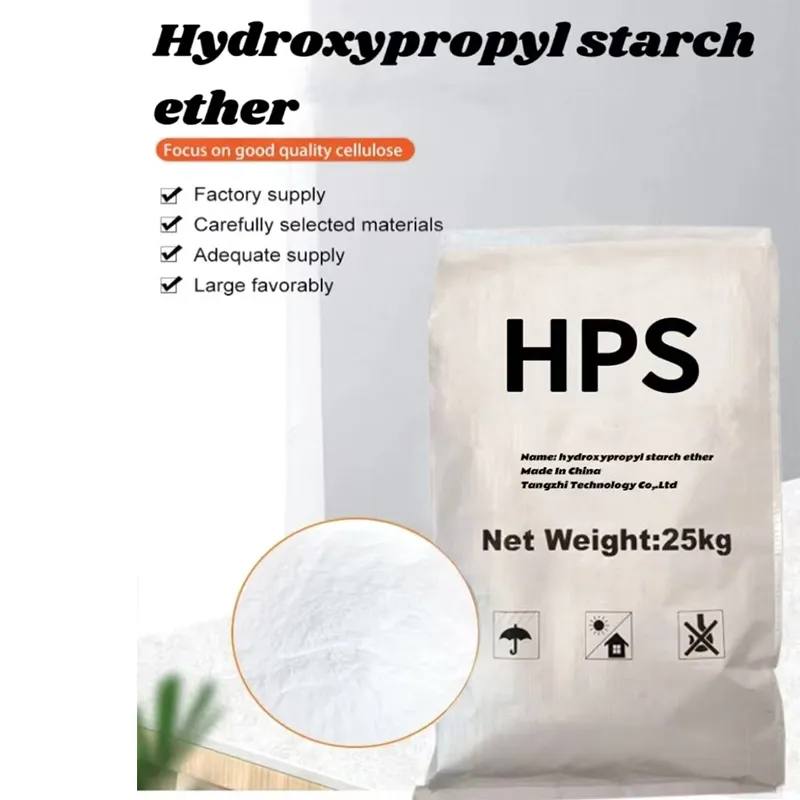Hebei Tangzhi Technology Co., Ltd.

cmc cellulose
Şub . 15, 2025 00:25
Back to list
cmc cellulose
Carboxymethyl cellulose (CMC) has emerged as a pivotal ingredient across various industries, providing versatile solutions and enhancing product performance in unique ways. As a sodium salt derivative of cellulose, this water-soluble polymer boasts significant applications that cater to the needs of industries such as food, pharmaceuticals, personal care, and environmental management. This article will delve into the multifaceted benefits of CMC, presenting an authoritative guide that underscores its essential role across diverse market segments.
Despite its widespread utility, the preparation and application of CMC require a nuanced understanding of its properties and behaviors under different conditions. Its performance is influenced by factors such as degree of substitution, molecular weight, and the presence of impurities, all of which necessitate careful consideration during the manufacturing process. Professionals working with CMC must leverage both expertise and empirical knowledge to optimize formulations, ensuring that their products deliver consistent results and meet industry standards. In terms of regulatory compliance, CMC adheres to stringent guidelines across different jurisdictions, further cementing its trustworthiness and reliability in consumer goods. It enjoys widespread acceptance by regulatory bodies like the FDA and EFSA, which attest to its safety and efficacy when used within specified limits. Manufacturers are assured by its well-documented profile and can therefore confidently incorporate CMC into a wide array of applications, knowing that it satisfies both quality and safety requisites. The ongoing research and technological advancements continue to expand the potential uses of CMC. Its application in emerging fields like nanotechnology and 3D bioprinting underscores the innovative pathways it can open. Scientists are exploring how CMC can be engineered or combined with other materials to create novel solutions that address complex scientific and industrial challenges, thereby enhancing its long-term viability and importance. In conclusion, CMC cellulose represents a remarkable blend of functionality and versatility. Its application extends beyond traditional uses, presenting opportunities for innovation and sustainability. As industries evolve and consumer expectations heighten, the role of CMC cellulose will undoubtedly expand, driven by its adaptability and the ongoing quest for efficient, eco-friendly material solutions. Whether through enhancing the texture and stability of food products, enabling advanced pharmaceutical formulations, or contributing to environmental sustainability, CMC continues to prove itself as an essential component in modern manufacturing and product development.


Despite its widespread utility, the preparation and application of CMC require a nuanced understanding of its properties and behaviors under different conditions. Its performance is influenced by factors such as degree of substitution, molecular weight, and the presence of impurities, all of which necessitate careful consideration during the manufacturing process. Professionals working with CMC must leverage both expertise and empirical knowledge to optimize formulations, ensuring that their products deliver consistent results and meet industry standards. In terms of regulatory compliance, CMC adheres to stringent guidelines across different jurisdictions, further cementing its trustworthiness and reliability in consumer goods. It enjoys widespread acceptance by regulatory bodies like the FDA and EFSA, which attest to its safety and efficacy when used within specified limits. Manufacturers are assured by its well-documented profile and can therefore confidently incorporate CMC into a wide array of applications, knowing that it satisfies both quality and safety requisites. The ongoing research and technological advancements continue to expand the potential uses of CMC. Its application in emerging fields like nanotechnology and 3D bioprinting underscores the innovative pathways it can open. Scientists are exploring how CMC can be engineered or combined with other materials to create novel solutions that address complex scientific and industrial challenges, thereby enhancing its long-term viability and importance. In conclusion, CMC cellulose represents a remarkable blend of functionality and versatility. Its application extends beyond traditional uses, presenting opportunities for innovation and sustainability. As industries evolve and consumer expectations heighten, the role of CMC cellulose will undoubtedly expand, driven by its adaptability and the ongoing quest for efficient, eco-friendly material solutions. Whether through enhancing the texture and stability of food products, enabling advanced pharmaceutical formulations, or contributing to environmental sustainability, CMC continues to prove itself as an essential component in modern manufacturing and product development.
Next:
Latest news
-
Low Substitution HPC - AI-Optimized Hydroxypropyl CelluloseNewsAug.05,2025
-
High-Performance Gypsum Retarder Chemical - Control SettingNewsAug.04,2025
-
MHEC Cellulose Premium Additive | Enhanced Industrial UsesNewsAug.01,2025
-
Antifoam & Defoamer Solutions | Fast Foam ControlNewsAug.01,2025
-
Hydroxyethyl Cellulose for Paint - Superior Thickening SolutionsNewsJul.31,2025
-
Low Substitution - Hydroxypropyl Cellulose for Enhanced DissolutionNewsJul.30,2025





















